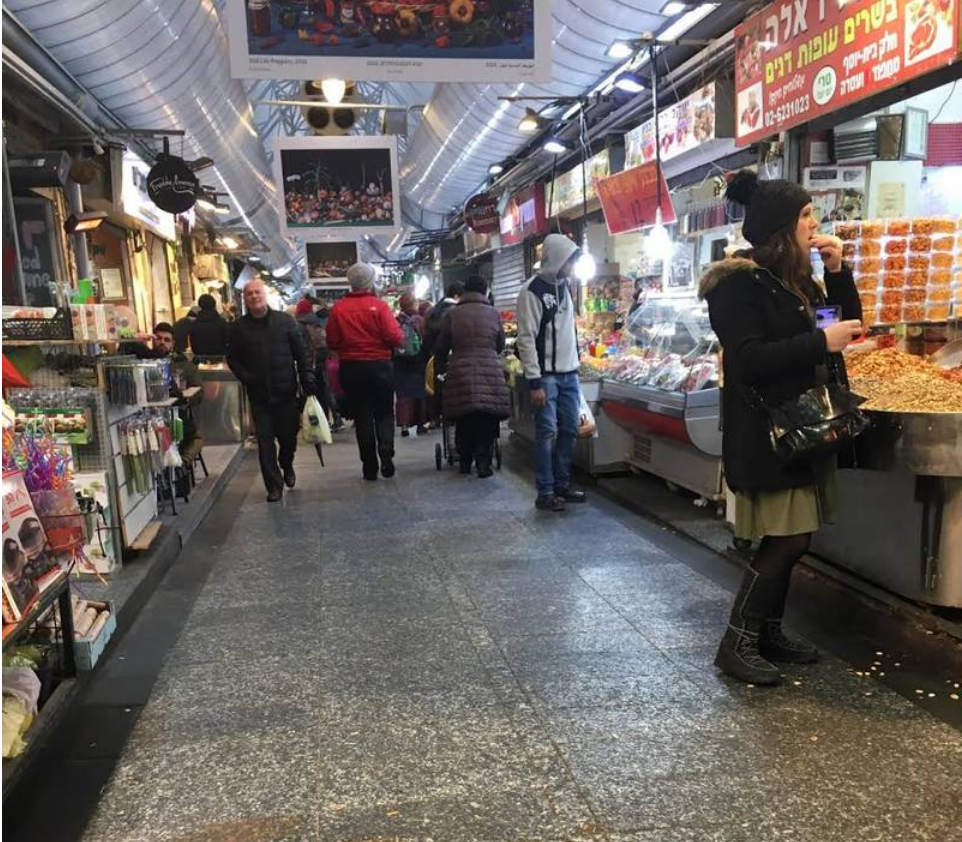Aaron Leibel: Shopping at the shuk
In my memoir, Figs and Alligators, I describe in some detail our weekly trips to the shuk (Mehane Yehuda, the market close to the western entrance to Jerusalem).
As I noted, after my wife, Bonnie, and I finished there, we lugged our heavy plastic shopping bags laden with fruits and veggies a goodly distance to Pinati’s Restaurant on King George Street in the heart of the city where we bought hummus and other delicacies to take home for Friday and Saturday lunch.
Sometimes, then we would walk two more blocks to the Atara cafe on the Ben Yehuda pedestrian mall for a cup of coffee and, if we were feeling flush, a piece of its delicious cake.
Then we lifted our loads — made even heavier by those restaurant takeout purchases — and trudged slowly back to our car for the long ride home. If it was winter, it might well be raining; in the summer, it would be blazing hot. And for several years we did all this without a car — we bought our very used 1971 Beatle in 1982 —and schlepping bags full of food on and off buses was a pain in that unmentionable lower body part.
As you read about our travails, I’ll probably hear you mutter: “What, they didn’t have supermarkets in Israel in the 1970s? And if they did, they didn’t sell fruit and vegetables?”
Yes and yes. Our neighborhood supermarket devoted almost a complete quarter of the store to those foods — after all, they were a major part not only of the Leibel family diet but of that of most Israelis.
True, the quality was somewhat higher in the shuk, and the prices were moderately cheaper. But even supermarket produce was pretty fresh and cheap — if it wasn’t, everyone would have gone to the shuk. Undoubtedly if we hadn’t gone to town, we would have missed out on Pinati’s delights for lunch.
So, somewhat better food perhaps at cheaper prices, some great hummus and occasionally, a wonderful cup of coffee — all that is one side of the scale. But then there’s the heat or the rain and the walking through crowded streets and the aching leg and arm muscles.
So, in retrospect, was it worth it? Absolutely. Despite all the discomforts, it was great fun. If you haven’t seen the stalls stacked high with scrumptious-looking goods, heard the stall owners yell out their wares in sing-song fashion as they compete for business (tapuzim taimim, raq esser — delicious oranges, only 10 [shekels a kilogram]; agvaniot achi yafot — the most beautiful tomatoes), felt the people jostle each in their search for the best deals available, put it on your bucket list.
Bonnie and I both worked hard — at two jobs each — during the week. Friday, we could go to the market and unwind. Although we probably would have scoffed at the idea back then, it also was a chance for us to bond.
Bonnie would visit one of her former patients who owned a store across the street from the market. She always would buy a few pieces of fresh coconut from the vendor at one entrance; I always was on the lookout for fresh figs, my favorite fruit, but no alligators please.
Those Friday mornings are among my most cherished memories of life in Israel.
^^^
Veteran journalist Aaron Leibel writes for The Jerusalem Post and Washington Jewish week. He is the author of the acclaimed memoir, Figs and Alligators: An American Immigrant’s Life in Israel in the 1970s and 1980s, available from Amazon in Kindle and paperback, Barnes and Noble, and at every local bookstore in the U.S. and Canada.
Photo: Mehane Yehuda market, replete with new roof and flooring, improvements undertaken after we left the country.



